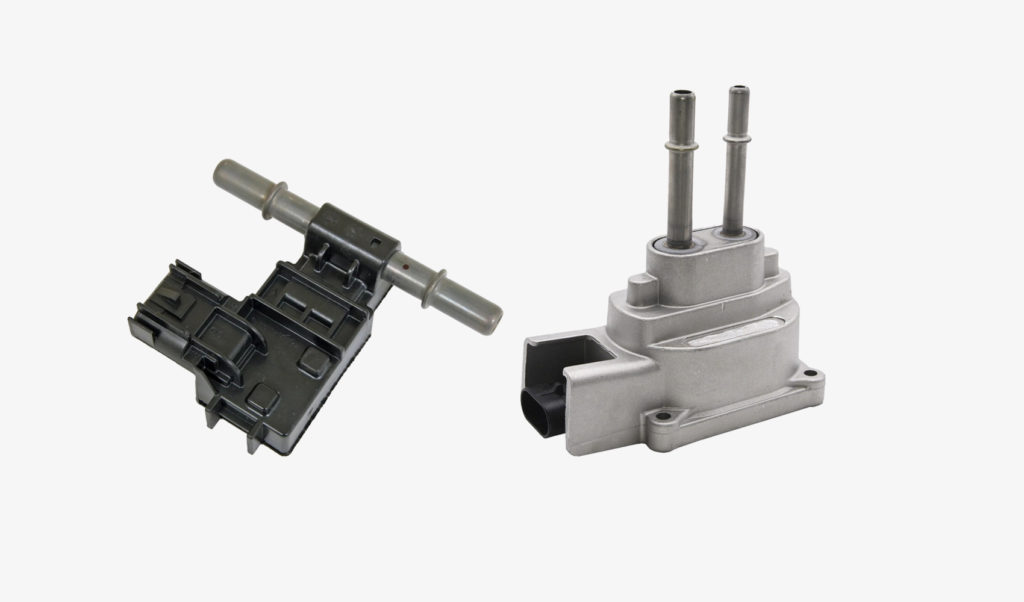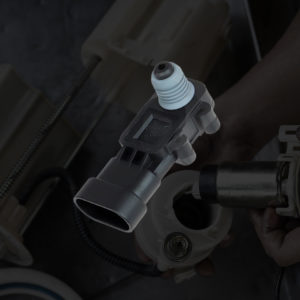In order for the powertrain control module (PCM) to identify fuel composition and modify fuel distribution, vehicles that can run on varying percentages of ethanol (Flex Fuel, E85) are equipped with a fuel composition sensor in the fuel system.
P0177 is a generic trouble code related to a fault in the fuel composition sensor or its circuit. Know more about it through this article.
What Does the P0177 Code Mean?
Diagnostic trouble code P0177 stands for “Fuel Composition Sensor Circuit Range/ Performance.” This error code only applies to flex-fuel vehicles. The fuel composition sensor, which is also referred to as a flex fuel sensor (FFS), calculates the amount of ethanol in the fuel that is being fed into the engine.

The powertrain control module (PCM) determines the ideal air/fuel ratio and ignition timing based on FFS data for the highest possible performance and fuel efficiency under all operating conditions. The amount of methanol in the fuel is directly reflected in the frequency (Hz) signal that the FFS generates.
The frequency increases as the methanol content rises. The PCM will turn on the check engine light and set DTC P0177 if it receives signals from the FFS that are out of range.
Note: The definition of code P0177 might be different depending on the vehicle manufacturer. Consult the appropriate repair manual or repair database for the exact code definition.
What are the Common Causes of the P0177 Code?
- Fuel composition sensor failure
- PCM failure
- Outdated PCM software
- Wiring issues
What are the Common Symptoms of the P0177 Code?

- Illuminated check engine light
- Poor engine performance
- Difficulty starting engine
- Increased fuel consumption
How to Diagnose the P0177 Code
Various vehicles can log DTC P0177, but that doesn’t mean that there’s a universal diagnostic procedure and solution for it. So it’s usually best to let a mechanic diagnose the issue for you. But if you have advanced automotive knowledge to proceed with engine cylinder diagnosis and repair, you can do it yourself.
How to Fix the P0177 Code
The way to resolve a P0177 code varies depending on the vehicle’s year, make, and model. You have two options to fix it: hire a certified mechanic or try to do the repairs yourself.
If you have advanced technical knowledge and hands-on experience in car repair, you can resolve the P0177 code on your own. Make sure you refer to a vehicle-specific repair manual or online repair database before you get started.
Where to Get a New Fuel Sensor for Your Car
One of the ways to clear a P0177 code is by getting a replacement fuel composition sensor at CarParts.com. Shop online and get the parts you need delivered straight to your doorstep in a matter of days.
We source our fuel sensors from some of the top parts manufacturers in the industry. All products are manufactured in state-of-the-art facilities to ensure they meet OE specifications and performance.
Download our mobile app or visit our website to shop from the comforts of your home. Use our vehicle selector to check for fitment, and toggle our search filters to narrow down your choices according to your preferred brand, price range, and more.
Don’t miss out on our best deals. Place your order before 12 pm ET and expect your new fuel sensor to arrive in as fast as two business days!
Any information provided on this Website is for informational purposes only and is not intended to replace consultation with a professional mechanic. The accuracy and timeliness of the information may change from the time of publication.


















